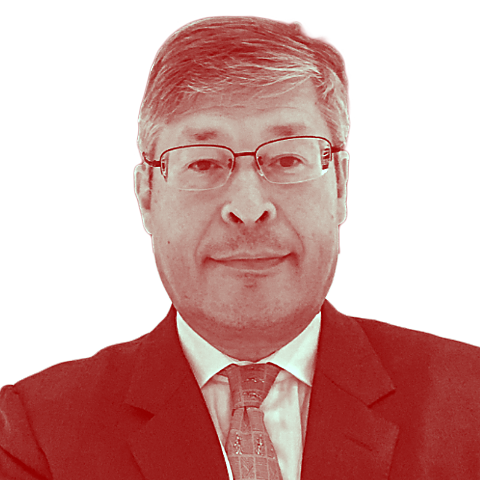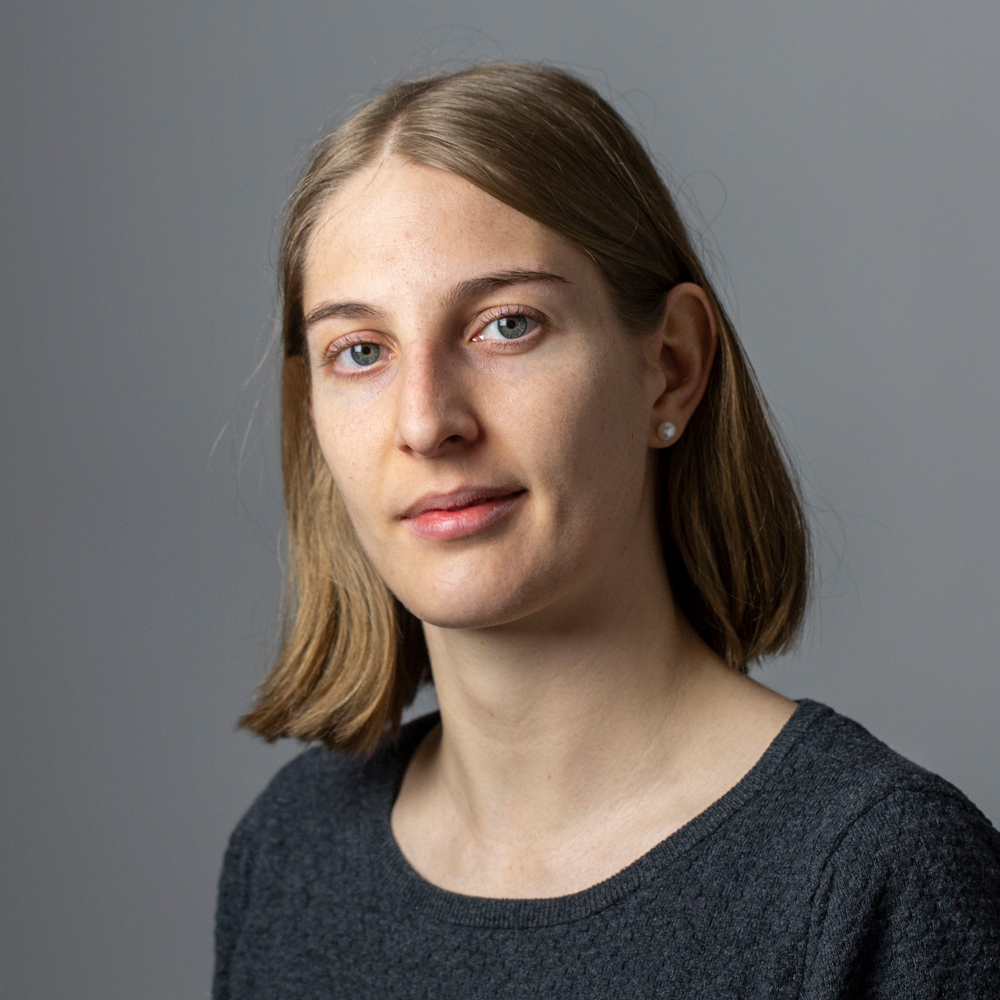
‘Our AI applications will transform the role of engineers’

Pierre Baqué, CEO of Swiss start-up Neural Concept, says his technology can halve the time needed to design and bring a new car model to market.
Founded in 2018, Neural Concept specialises in artificial intelligence (AI) applications, which it sells mainly to the automotive industry. Today the start-up has 80 employees in the Swiss city of Lausanne, New York and Munich.
It has around 60 client companies and has made a name for itself in Formula One.
Swissinfo met founder and CEO Pierre Baqué of Neural Concept at the company’s offices in the innovation park of the Swiss Federal Institute of Technology Lausanne (EPFL).
Swissinfo.ch: How would you explain simply what Neural Concept does?
Pierre Baqué: Our AI applications act as assistants or co-pilots for engineers. This enables them to develop products more quickly, perform more iterations in a set time and gain from automated suggestions. In the car industry, for instance, our technology can cut by half the time needed to design and bring a new model to market.
Our AI applications will transform the role of engineers, but without replacing them. The challenge is to create a truly symbiotic relationship between human creativity and the analytical power of AI.

Swissinfo: What impact does Neural Concept have on employment for your clients, particularly in the automotive and aerospace industries?
P.B: This is a very important issue for our clients. AI generates considerable efficiency gains: some companies will be able to develop more products with the same number – or even more – engineers, while others will decide to produce the same volume with fewer engineers.
Swissinfo: Will training programmes for engineers need to be adapted to cater for these new realities?
P.B: Absolutely. Engineering tools are evolving, so courses will have to adapt, more quickly and more fundamentally than they did when computer-aided design and simulation were introduced.

Swissinfo: The education system in Switzerland is very democratic, whereas in France it is extremely elitist, with institutions such as the École Polytechnique de Paris, of which you are a graduate. Has the fact that you are a French-trained engineer made a difference on how you work?
P.B.: The rigorous education at the École Polytechnique de Paris, including two years of preparatory classes, enables students to excel in mathematics, physics and other technical fields. These competences remain throughout their lives, not least thanks to the intellectual discipline acquired. The fact that this school is notoriously hard to get into also makes it a valuable business card, which definitely helped us in obtaining our first contracts with major groups such as Airbus and Safran. These credentials also boosted our initial fundraising efforts. The downside of such elitism, however, is the low value placed on apprenticeships in France, whereas they are one of the great strengths of the Swiss system.
Read more on Switzerland’s ChatGPT alternative.

More
Switzerland launches transparent ChatGPT alternative
Swissinfo: How are you affected by Swiss or foreign regulations on AI?
P.B: The term AI covers many different realities, which makes all attempts at regulation more difficult. In our case, there is no legislation in force that directly impacts our work.
Swissinfo: Would you nonetheless like to see safeguards put in place, in particular to protect data and ensure that AI solutions are ethical?
P.B.: As a citizen, I would like to see governments taking steps to prevent the existential risks associated with AI, which are still only hypothetical, but which are serious enough to be of concern. I am thinking, primarily, of the risk of the emergence of super-intelligences that become uncontrollable or are used for private purposes that run counter to the good of humanity. Because of these scenarios I believe that regulation is necessary, with measures similar to those governing nuclear weapons. Switzerland could perhaps play a role here at the international level.

Swissinfo: How do you go about getting new clients? And what are the reference companies for you in Switzerland?
P.B.: We combine a variety of approaches: direct action from our headquarters in Lausanne, sales development through our subsidiaries in New York and Munich, participation in trade shows such as the CES tech event in Las Vegas, and collaboration with resellers such as Japan’s Cybernet. We currently have 60 client companies, including Safran, General Electric, Subaru and General Motors, as well as four Formula One teams. We are focusing on the automotive, microelectronics, aerospace and energy sectors.
For the time being, we don’t have any major Swiss clients, although ABB and Pilatus show strong potential. In a small country like Switzerland, it is natural to aim for an international market from the outset.
Swissinfo: Who are your main competitors?
P.B.: The field of AI for Science is booming today, with a wide variety of approaches. Neural Concept is so far ahead in its field that it is hard to identify a direct competitor offering a similar product or service. Our solutions complement computer-aided design and computer-aided engineering software developed by major providers such as France’s Dassault Systèmes, Siemens and Ansys, an American engineering simulation company. These companies can add virtualisation features to their products, but they cannot compete with our ability to add AI applications.
Read more on how AI giants are accused of hiding their environmental footprint.

More
AI giants accused of hiding environmental footprint
Swissinfo: How do you ensure the scalability of your products?
Our strategy is to develop as many reusable tools as possible. Our architecture is built on three layers: a core algorithm base, modular platforms for different applications and customisable interfaces for each client.
Swissinfo: You raised CHF38 million ($48 million) in three funding rounds. What happens next?
P.B.: Our immediate priority is maintaining and consolidating our technological leadership. We want to continue developing the best product to satisfy our clients and support our sales growth. We are only in the early stages of our development and, if we stay on this trajectory, all options will remain open: going public, maintaining our independence or selling to a large group.
Swissinfo: Neural Concept now has a team of 80 employees. How do you see your future workforce?
P.B.: We are actively continuing to recruit, especially for product development positions. The research and development teams will remain concentrated in Switzerland in order to maximise possibilities for exchange, while the sales team will be built up abroad, particularly in the United States and Germany. We also plan to hire staff in Japan and Korea. We are looking to double our workforce in the medium term.
Swissinfo: AI consumes large amounts of energy. What about your ecological footprint?
P.B: Our ambition is to provide engineers and researchers with AI assistants that will help them find technological solutions to the energy – and therefore ecological – crisis we are facing. In other words, ecological considerations are one of the main drivers of our business.
Swissinfo: Neural Concept has just been selected by the World Economic Forum as one of the 100 technology pioneers. What does this mean for you?
P.B.: We want to make a positive contribution to the development of our sector while forging useful contacts, including on a business level. This recognition will enhance our profile and credibility among clients and investors alike.

Swissinfo: Is Switzerland a good place to build an AI company like Neural Concept?
P.B.: Yes, especially for an EPFL spin-off. The transition from the university sphere has been smooth, and the region is ideal for recruiting qualified engineers, with limited competition among employers. However, for a more advanced stage of growth, there is a lack of major local investors compared to London or New York, and a certain difficulty in recruiting ambitious and experienced sales executives. Our presence in Munich and New York is a great plus for this today.
Swissinfo: How is the fact that you are a Swiss company perceived in your field?
P.B.: Our status as an EPFL spin-off gave us initial technical credibility, but we should not rest on our laurels. Generally speaking, Swiss companies are known for being reliable and serious and with a humane approach. The country’s neutrality is also an advantage, particularly for clients in highly regulated sectors such as aeronautics, aerospace, energy and defence. Switzerland is moreover starting to be recognised internationally as a “deep-tech nation”, which is entirely legitimate given the role played by hubs such as Zurich (with the presence of OpenAI, Nvidia, Anthropic, Deep-Judge, etc.) and Lausanne (Isomorphic, Neural Concept, etc.) in the AI field.
Swissinfo: Are you affected by current geopolitical issues, such as US tariffs and Swiss-EU relations?
P.B.: US tariffs do not affect our services, but they do directly affect our clients, in particular car manufacturers. Relations between Switzerland and the EU have no impact on our work at this juncture.
Edited by Virginie Mangin

In compliance with the JTI standards
More: SWI swissinfo.ch certified by the Journalism Trust Initiative

































You can find an overview of ongoing debates with our journalists here . Please join us!
If you want to start a conversation about a topic raised in this article or want to report factual errors, email us at english@swissinfo.ch.